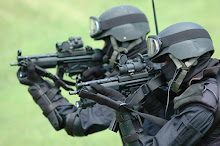
Iran's first nuclear power station is to be loaded with fuel and declared operational in a ceremony attended by Iranian and Russian officials. Nationwide celebrations are planned to mark the event at the Bushehr reactor in southern Iran.
Russia will operate the plant, supplying its nuclear fuel and taking away the nuclear waste. Iran has been subject to four rounds of UN sanctions because of its separate uranium enrichment programme. The West fears Tehran wants to build a nuclear weapon, but Iran insists its plans are for peaceful energy production.
The Bushehr facility has taken 35 years to build and has been plagued by delays. The BBC's Jon Leyne says Iranian officials have promoted Saturday's launch as a victory for the Islamic republic against its enemies.
Professor Ali Ansari, an Iran expert at the University of St Andrews, in Scotland, said Tehran was likely to exaggerate the importance of the start-up at Bushehr. "It will obviously have a very theatrical opening but the delays have meant that the power plant is a very old model and the contribution to the national grid is very small," he said.
The Bushehr plant should begin producing electricity in about a month, experts say. The uranium fuel used there is well below the enrichment level needed for a nuclear weapon.
Weapons-grade uranium must be enriched by more than 90%. In contrast, the uranium at Bushehr is enriched by 3.5%.
The Bushehr fuel has been supplied by Russia, although Iran is already producing its own uranium enriched to fuel grade. It has also begun a pilot program to enrich uranium to 20% which it says is needed for a medical research reactor.
It is that programme that has alarmed the West and Israel. In a defiant statement on Friday, the head of Iran's Atomic Energy Organisation Ali Akbar Salehi said the country would continue uranium enrichment, the official Iranian news agency IRNA reported.
Referring to the Bushehr plant, he said: "Suppose we receive the required nuclear fuel for the plant from the Russians for the next 10 years, what are we going to do for the next 30 to 50 years?" He said Iran could produce up to 30 tons of enriched uranium at its Natanz plant once the necessary centrifuges are installed at the site.
( www.bbc.co.uk )
Russia will operate the plant, supplying its nuclear fuel and taking away the nuclear waste. Iran has been subject to four rounds of UN sanctions because of its separate uranium enrichment programme. The West fears Tehran wants to build a nuclear weapon, but Iran insists its plans are for peaceful energy production.
The Bushehr facility has taken 35 years to build and has been plagued by delays. The BBC's Jon Leyne says Iranian officials have promoted Saturday's launch as a victory for the Islamic republic against its enemies.
Professor Ali Ansari, an Iran expert at the University of St Andrews, in Scotland, said Tehran was likely to exaggerate the importance of the start-up at Bushehr. "It will obviously have a very theatrical opening but the delays have meant that the power plant is a very old model and the contribution to the national grid is very small," he said.
The Bushehr plant should begin producing electricity in about a month, experts say. The uranium fuel used there is well below the enrichment level needed for a nuclear weapon.
Weapons-grade uranium must be enriched by more than 90%. In contrast, the uranium at Bushehr is enriched by 3.5%.
The Bushehr fuel has been supplied by Russia, although Iran is already producing its own uranium enriched to fuel grade. It has also begun a pilot program to enrich uranium to 20% which it says is needed for a medical research reactor.
It is that programme that has alarmed the West and Israel. In a defiant statement on Friday, the head of Iran's Atomic Energy Organisation Ali Akbar Salehi said the country would continue uranium enrichment, the official Iranian news agency IRNA reported.
Referring to the Bushehr plant, he said: "Suppose we receive the required nuclear fuel for the plant from the Russians for the next 10 years, what are we going to do for the next 30 to 50 years?" He said Iran could produce up to 30 tons of enriched uranium at its Natanz plant once the necessary centrifuges are installed at the site.
( www.bbc.co.uk )

No comments:
Post a Comment